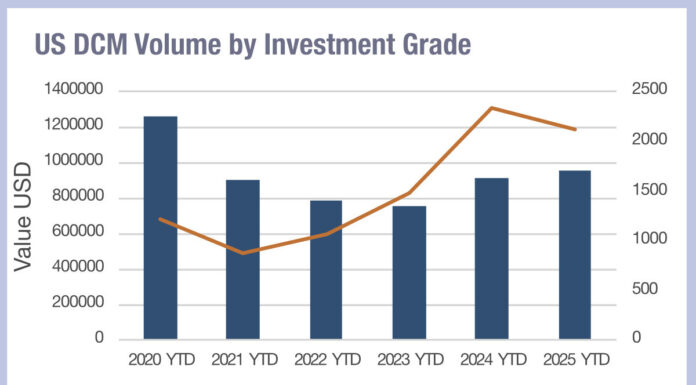Axe distribution service, Neptune, is evolving through a transformation of underlying technology, elevating its services to a new level.
Neptune’s CEO, John ‘Coach’ Robinson, and CTO, Gavin Collins reveal the new Neptune, and outline the very significant difference that users will be able to realise for their own and their clients’ benefits.
How is Neptune changing to help clients in 2022?
Gavin Collins: We will have new Neptune technology in June 2022. We have partnered with a new technology company, Genesis Global, who recently raised $200 million series C funding. Every line of code will change in the platform and our clients will receive new upgrades including single name CDS axes and soon we’ll be able to consume data in different channels via REST API’s instead of just FIX.
The changes are existential for Neptune and mean we can shorten the feedback loop from a matter of months to weeks when responding to client requests.
We’re very focused on the organic growth of our traditional businesses like adding munis, increasing EM coverage, that kind of stuff, but we also want to build a platform where we can pivot and change and take Neptune in different directions.
How are you changing internally?
Gavin Collins: We hired Ben Cohen, our data scientist, and we have the most trusted data set in the market. The banks believe in us as they own us and the clients believe in us because we operate independently and consolidate the largest slice of up to the minute liquidity.
Previously we’ve been focused on distributing the flow of information; now we’re also going to be creating lots of data products. Given we’re one, if not, the most trusted data source those products should go toe-to-toe with the big platforms on things like composite pricing, liquidity scores and skews across a variety of spectrums as well as providing valuable insight back to dealers.
Do our users care whether Neptune is powered by low code, no code, AI, big data? It doesn’t and shouldn’t matter for our community, but for us it means we can be more responsive to client demands. Tangentially, it’s cheaper to run, it is more componentised, and we can adapt our business more easily.
Do you think that smaller firms are making inroads on larger platforms in fixed income?
Coach Robinson: They have been to an extent, and more are gaining traction. There is such a dominant presence in the market from the big platforms, and they own the pricing power as well. We have heard that has been frustrating for the sell side, in terms of handling execution costs.
Clients determine which venues are going to be traded on because it’s embedded in their workflow. For a new venue to succeed, it therefore has to be not only cheaper, but better than what they’re getting elsewhere. It’s easy for us to identify the firms that have invested in technology, infrastructure and have built their own EMSs and frankly, those are our best customers. Those clients of Neptune get the most use of our data because they’re able to build it into their process.
But there’s a whole plethora of large global asset managers out there who have not invested yet. I have conversations about how we can help them get to the level that they need to be at. It needs commitment from senior management and also needs commitment at the buy-side trading desk level to embrace this technology data that we’re providing to them.
Our mission statement is that users have to trust the integrity of the data, and that is true for an OMS, an EMS or any trading platform to really succeed.
Which trends are there around alternative data that you’ve noticed?
Coach Robinson: It is and will continue to be a growth area and there are fintechs which are definitely gaining traction. Several firms are working on the concept of a consolidated tape and all of this points to a keen desire from clients to access the best pre and post trade data they possibly can.
What sort of demand are you seeing for services like liquidity scoring and matching data as a service? How do they feed into the overall set of services that clients are asking for?
Gavin Collins: We work with differing levels of sophistication amongst clients so we want to help where our clients have a greater digital appetite than they had previously. Some of the unglamorous tasks when you’re working with data is wading through datasets, cleansing and normalising them so everything is standardised. Neptune had done all this already and can help there so you’re reading a uniform data set.
We’re excited by the move into data products as our position as a consolidator means we can give our community new data that they can’t easily get access to. We have welcomed a hands on approach from our clients and dealers to tailor these new products to their needs whilst ensuring the right level of anonymity and fairness.
Coach Robinson: We’ve been asked by some of our clients to sanitise the data and customise the data, because whilst there is no lack of quantity, there could be a lack of quality. We work on quality every day and we’re now in a position with the resources we’ve added via people and technology to be able to do that for our clients even more.
We’re in a position to free up their analysts to do more productive work at a portfolio management level, for example. We can make their lives easier, while creating new potential ways to generate alpha.
©Markets Media Europe 2025













